2024 Meeting
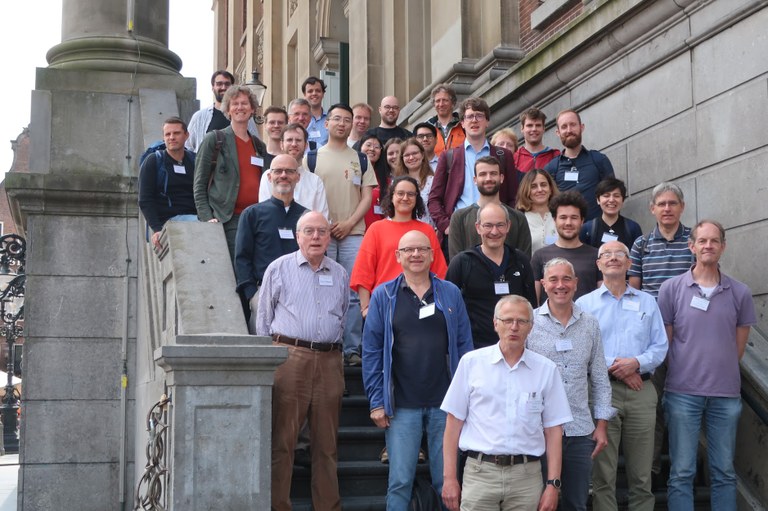
This years the Dutch-Flemish Scientific Computing Societies (SCS) Springmeeting took place Friday May 24, 2024, at the Rijksuniversiteit Groningen. A mix of junior and senior researchers presented their research.
Location:
House of Connections
Grote Markt 21
9712 HR Groningen
Fred Wubs (Rijksuniversiteit Groningen), Barry Koren (Eindhoven University of Technology) and Martine Anholt (CWI, Secretary SCS).
Program
| 09:30-10:00 | Registration, coffee and tea |
| 10:00-10:40 | Jan ten Thije Boonkkamp (Eindhoven University of Technology) |
| 10:40-11:05 | Balint Negyesi (Delft University of Technology) |
| 11:05-11:30 | Vanja Nikolić (Radboud University) |
| 11:30-12:00 | Coffee and tea break |
| 12:00-12:25 | Miriam Löcke (Rijksuniversiteit Groningen) |
| 12:25-12:50 | Richard Stevens (University of Twente) |
| 12:50-13:00 | Group picture |
| 13:00-14:00 | Lunch |
| 14:00-14:25 | Carolina Urzúa-Torres (Delft University of Technology) |
| 14:25-14:50 | Toon Ingelaere (KU Leuven) |
| 14:50-15:20 | Coffee and tea break |
| 15:20-15:45 | Francesc Verdugo Rojano (VU Amsterdam) |
| 15:45-16:25 | Fred Vermolen (Hasselt University) |
| 16:25-16:30 | Closing |
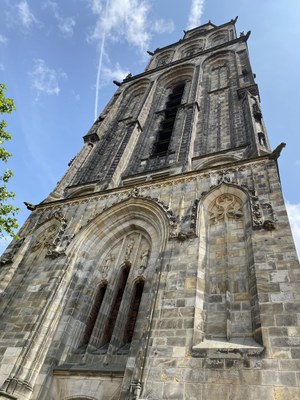

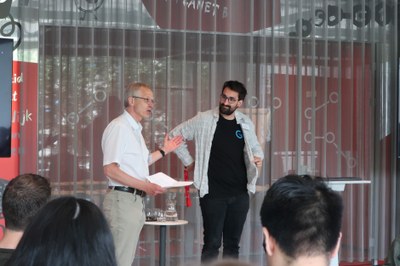

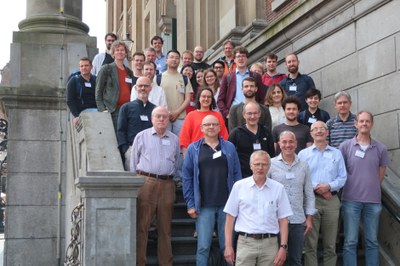
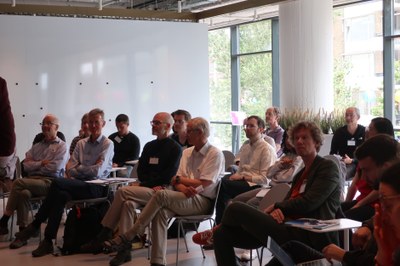
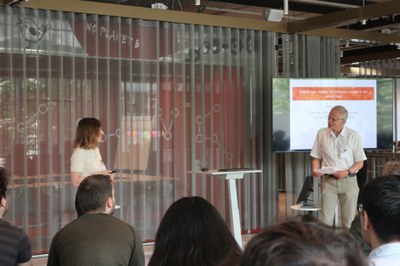
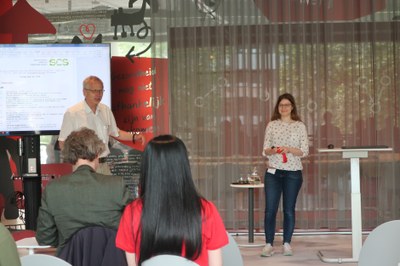
More pictures from an excellent day can be found here.
Speakers:
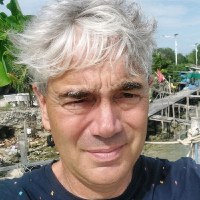 |
Fred Vermolen (Hasselt University) Fred Vermolen is a professor in the Mathematics and Statistics Department (CMAT) and the Data Science Institute (DSI) at the Hasselt University in Belgium. His research treats topics from mathematical modelling and computational mathematics. Most of the applications are on medical biology such as tumors, cancer and deep tissue injury. The biological nature of the problems need a partial differential equations approach, as well as uncertainty assessment due to the lack of information regarding parameter values. His previous positions were associate and assistant professorships at the Delft Institute of Applied Mathematics. He still holds a guest position there, as well as a guest position at the University of Johannesburg in South Africa. He obtained his PhD degree on the topic of moving boundary problems (Stefan problems), mathematical models for particle dissolution in aluminium alloys, under the supervision of Prof. Vuik. |
 |
Jan ten Thije Boonkkamp (Eindhoven University of Technology) |
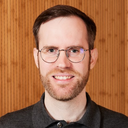 |
Francesc Verdugo Rojano (VU Amsterdam)
|
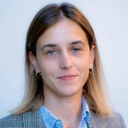 |
Vanja Nikolić (Radboud University) Vanja Nikolić is an assistant professor in the Applied Mathematics group at Radboud University. She received her PhD degree in 2015 from the University of Klagenfurt in Austria, and worked as a postdoctoral researcher at the Technical University of Münich until 2019. Her research expertise is in the mathematical and numerical analysis of nonlinear partial differential equations, with a particular focus on their applications in nonlinear acoustics. |
 |
Carolina Urzúa-Torres (Delft University of Technology) |
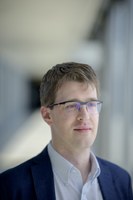 |
Richard Stevens (University of Twente) Richard Stevens is an associate professor in the Physics of Fluids group at the University of Twente. He has acquired an ERC starting and ERC consolidator grant. His research interests include computational fluid dynamics and high-performance computing. His work focuses on the fundamental understanding of turbulent Rayleigh Benard convection and wind farm fluid mechanics. |
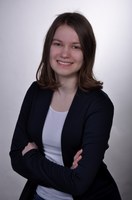 |
Miriam Löcke (Rijksuniversiteit Groningen) Miriam Löcke is a PhD student with Cristobal Bertoglio at the Computational Mathematics group at the University of Groningen. Her research centers around inverse problems form magnetic resonance imaging (MRI) data and optimal experimental design. |
 |
Toon Ingelaere (KU Leuven) |
 |
Balint Negyesi (Delft University of Technology) Balint Negyesi is a PhD candidate in numerical analysis at the Department of Applied Mathematics of TU Delft, supervised by Kees Oosterlee (UU) and Mark Veraar (TU Delft). He received the Peter Paul Peterich scholarship for his doctoral studies. His research focuses on the numerical solution of high-dimensional backward stochastic differential equations and their applications in mathematical finance and stochastic control. His contributions include convergence analysis of discrete time approximation errors of novel discretization schemes, deep BSDE approximations for decoupled, coupled and discretely reflected high-dimensional FBSDE systems, and Fourier cosine expansion methods in classical settings. |
Abstracts:
|
